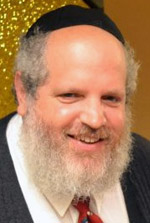Ki Tisa — And You Shall Count

CARLSBAD, California — This week’s Torah Portion is titled ‘Ki Tisa’, translated as, ‘And you shall count.’ The beginning of the portion tells us about the commandment to take a census of the men of Israel, from the ages of 20-60, who would be eligible to serve in the army. The census was not done in a typical fashion by direct count. Instead each person gave a half-shekel coin and those coins were then counted. The money taken from this census was used for communal needs.
Later in our portion the difficult story of the infamous Golden Calf is related. By way of background: Moses had ascended Mount Sinai and remained there in seclusion with G-d as the Law was transmitted to him in order for him to bring it down to the people. The people miscalculated when Moses would return and when he did not return when expected a small group of them lost faith and sought to create a new ‘leader’ to whom they could turn for direction and protection.
Understandably, this greatly angered the Almighty, Who had just commanded the people not create any idols. G-d describes Himself as a “Jealous G-d,” and makes it abundantly clear that He will not tolerate any other gods. Is G-d insecure? Of course not! The fact that only G-d has any power makes the notion of other deities not only ridiculous, but seriously harmful to the believer in them.
Moses broke the Tablets of Testimony and returned to his people so to put an end to the insurrection. While many may gasp at Moses’ action of throwing down the Tablets, it was actually an act of great kindness on his part. The Tablets testified that any who would be involved in idol worship would surely die. Moses preferred to see the destruction of the Tablets rather than the destruction of his people. The vast majority of the people did not participate in the sin, however, a significant number did, and many simply turned away rather than proactively try to stop the sinners.
The aftermath of the sin was the building of the Mishkan, the Tabernacle, which is where the Divine Presence would be revealed. It had been proven that the people simply could not handle an open revelation of Divinity in their midst. Better that it should be revealed in a specific place so that the people could properly prepare themselves before approaching.
While it is true and proper that we must lament the decision of some of that generation it is also true that the magnificent heroism of Moses must be celebrated. It is not for nothing that he is called the Faithful Shepherd of our people. He decisively made a difficult choice in backing our people – even while they were sinning (or allowing sinfulness in their midst). Moses told G-d to either forgive the people or take his name out of the Torah! Moses displayed complete and utter spiritual self-sacrifice for the Jewish people.
Every Jew should be inspired by Moses’ devotion to him/her! Even more, Jewish Mysticism tells us that each of us has a spark of Moses within us. That means that each of us has this same ability – to utterly sacrifice ourselves for others. Let us resolve to serve each other with complete devotion and thereby serve the Creator in the best possible manner!
*
Rabbi Yeruchem Eilfort is Director of Coastal Chabads and Chabad at La Costa. Rabbi Eilfort welcomes readers’ comments and questions and may be reached at RabbiE@ChabadatLaCosta.com.